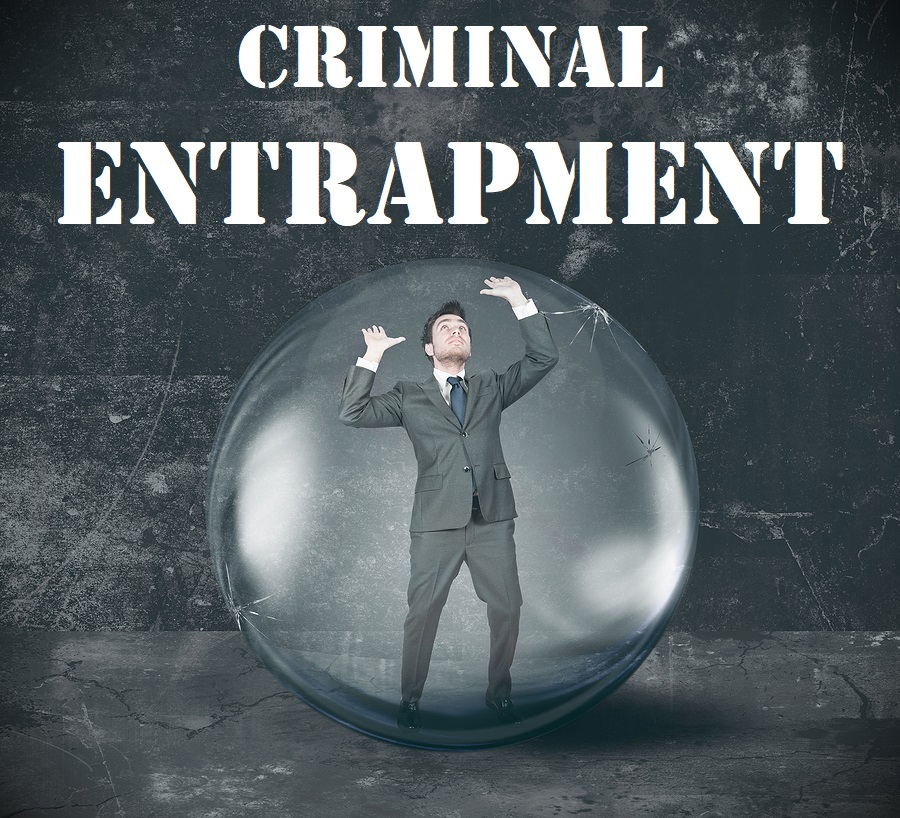Criminal entrapment is a complex legal topic with significant implications for those accused of crimes. This comprehensive guide explores the concept of entrapment, essential for criminal defendants, suspects, and those advocating for civil rights. By delving into the intricacies of entrapment claims, this post aims to provide a deeper understanding of legal recourse available amidst the challenge of entrapment. Keep reading to get started.

Criminal Entrapment Cases
Criminal entrapment is a defense that can be raised by a defendant who claims that they would not have committed a crime were it not for the involvement of the police or government agents. It essentially argues that the individual was coerced by law enforcement into committing a crime they otherwise would not have. This defense is rooted in the belief that the integrity of the legal system is compromised when officers induce or instigate individuals to commit crimes.
Entrapment law can be traced back to the United States in the late 19th century, with federal and state courts formulating the doctrine over time. The foundational case for this defense is Sorrells v. United States (1932) and later reaffirmed in Sherman v. United States (1958).
Elements of Criminal Entrapment
To mount a successful entrapment defense, defendants must prove two primary elements:
Inducement: There must be evidence that the government induced the defendant to commit the offense. An inducement can include extensive pressure, fraud, flattery, threats, or any other tactics used to convince an otherwise unwilling person to commit a crime.
Lack of Predisposition: The defendant must demonstrate that they were not ready and willing to commit the crime before the alleged government inducement.
Examples of Entrapment Scenarios
Cases involving criminal entrapment can take various forms, such as:
Infiltration and manipulation: An undercover officer infiltrates a group and coerces or manipulates members, leading them to commit criminal acts.
Sting operations: Law enforcement officers set up elaborate situations to encourage suspects to commit a crime, often with high levels of incentives or coercion.
Repeated solicitation: Authorities make repeated and insistent requests for a person to commit a crime.
These scenarios highlight the subtle and overt ways in which the entrapment defense can be invoked to challenge the legality of law enforcement’s conduct.
Legal Recourse for Criminal Defendants
In the United States, the Constitution provides several rights and protections for individuals that can be significant in cases involving entrapment:
The right to remain silent: The Fifth Amendment protects individuals from being compelled to be witnesses against themselves in criminal cases. This right can be invoked when an individual is being interrogated or pressured to engage in criminal activity.
The right to counsel: The Sixth Amendment guarantees the right to legal representation. A criminal defense lawyer can provide advice and representation crucial for navigating entrapment cases.
Due process: The concept of due process in the Fifth and Fourteenth Amendments ensures that the government must respect all the legal rights owed to a person.
Strategies for Defense
There is no federal statute that provides uniform entrapment standards. Instead, entrapment law varies by state, with some jurisdictions holding strict standards for what constitutes entrapment. This means defendants in different states may face distinctly favorable or challenging landscapes when claiming entrapment. Even still, when facing an entrapment claim, a criminal defense strategy may focus on:
► Providing evidence of inducement in the form of witness testimony, recordings, or other documentation.
► Demonstrating the defendant’s lack of predisposition to commit the crime through character evidence, prior conduct, or expert opinions.
► These strategies are critical components in constructing a defense that challenges the actions and motivations of law enforcement agencies.
Proving Entrapment
The burden of proving entrapment falls squarely on the defendant. They must present a preponderance of evidence showing that they were induced by the government to commit the crime. This can be a significant hurdle, as courts generally view law enforcement favorably.
Final Thoughts
Understanding the nuances of criminal entrapment is crucial for anyone who may face such charges. It highlights the necessity of knowledgeable legal representation and the importance of upholding civil rights. Criminal defendants, especially those who believe they have been entrapped, should seek immediate counsel from a qualified criminal defense attorney. By doing so, they can better navigate the complexities of entrapment law and improve their chances of a just outcome.
Are you wondering if you might be a victim of criminal entrapment? Are you looking for legal advice regarding a recent cop encounter? Contact Attorney David E. Lewis at 317-636-7514 to speak with a seasoned criminal defense lawyer in Indianapolis, Indiana. Our law firm will obtain the best possible outcome for your criminal case!
Related Posts:
Stay Calm and Collected: How to Interact With Cops
Truth Seeking: The Techniques and Tactics in Police Interrogations
Criminal Defense Tips for Being Interviewed as a Suspect




